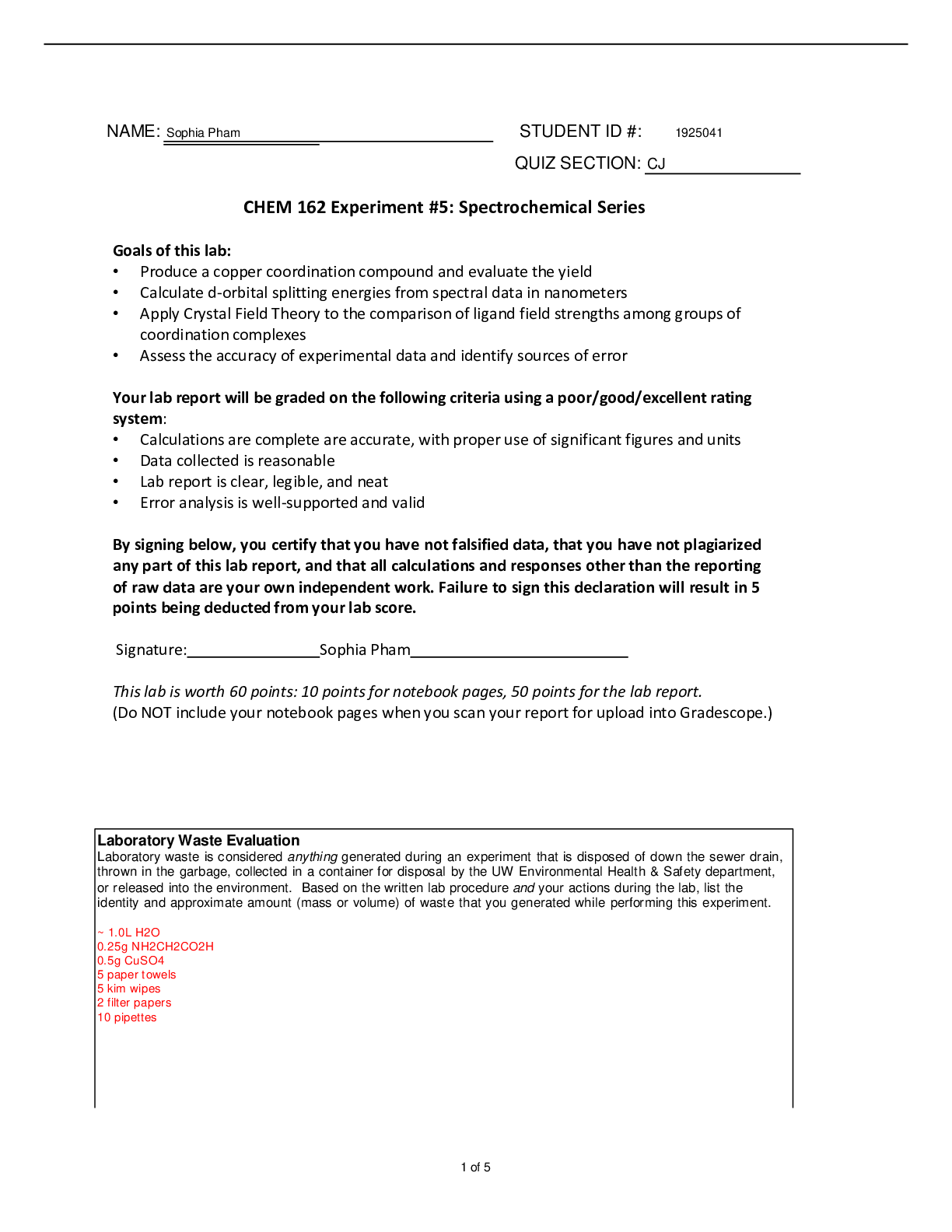Chemistry > Lab Report > CHE122 - Laboratory Report Lab 3: Lab Standardization of Sodium Hydroxide Solution (All)
CHE122 - Laboratory Report Lab 3: Lab Standardization of Sodium Hydroxide Solution
Document Content and Description Below
CHE122 - Laboratory Report Date: 6-14-18 Lab 3: Lab Standardization of Sodium Hydroxide Solution Purpose Figure 1. Coral in an Aquarium How Can You Keep an Aquarium Healthy? Aquariums, especiall ... y those with saltwater, can be very difficult to keep healthy. Corals (see Figure 1) are particularly sensitive to changes in their environment. To keep the fish, corals, and other aquarium inhabitants healthy, aquarium owners must periodically test the water for the concentration of a variety of water components such as pH, nitrate, nitrite, ammonia, and other compounds using a standardized test kit. Because some fish and corals are very sensitive to slight changes, it is important that these tests are accurate. Background Sometimes when preparing a solution, only the approximate final concentration is known. However, in some cases the exact concentration of a solution is needed to perform quantitative chemical analyses. For example, solid sodium hydroxide (NaOH) is very hygroscopic, meaning it absorbs moisture from the atmosphere, and therefore it is difficult to weigh accurately. Depending on the storage conditions, the mass percent of water can vary significantly and there will be less NaOH in a given mass of the solid than expected. To prepare an NaOH solution with an exact molar concentration, it must be standardized with an acid that is a primary standard. For a substance to be a primary standard, the following criteria should be met, or at least approached: It must be available in very pure form. It must be reasonably soluble. It must be stable in the pure form and in solution. It must be non-hygroscopic and easily dried. It must be a compound with a reasonably high molar mass to minimize weighing errors. It must react rapidly with the substance being standardized with a well-known stoichiometry. Benzoic acid is a good primary standard because of its high purity, relatively large molar mass, and because it is not hygroscopic. The balanced acid–base reaction with sodium hydroxide is shown below. C 7 H6 O2(aq )+ NaOH ( aq) → NaC7 H5O2 (aq)+H2 O(l) Standardization Titrations Titration is a volumetric analysis technique used to determine the unknown concentration of a solution by using the known concentration of another. Solutions are often standardized using titration. In an acid–base standardization titration, either a solution of a base of known concentration (titrant) is used to determine the exact concentration of a solution of acid (analyte) or vice versa. However, some standardization titrations use a titrant solution of approximate concentration to titrate a known amount of primary standard. A color indicator or a pH meter can be used to determine the end point of the titration. The end point of a titration occurs when the indicator changes color, typically when a small excess of the titrant has been added. If the indicator is chosen well, the end point will correspond closely to the point when all the analyte has been neutralized by the titrant (equivalence point). Phenolphthalein is a commonly used acid–base indicator that is colorless in acidic solutions, but becomes pink when the solution turns basic [Show More]
Last updated: 3 years ago
Preview 1 out of 15 pages

Buy this document to get the full access instantly
Instant Download Access after purchase
Buy NowInstant download
We Accept:

Reviews( 0 )
$11.00
Can't find what you want? Try our AI powered Search
Document information
Connected school, study & course
About the document
Uploaded On
Jul 28, 2021
Number of pages
15
Written in
All
Additional information
This document has been written for:
Uploaded
Jul 28, 2021
Downloads
0
Views
105


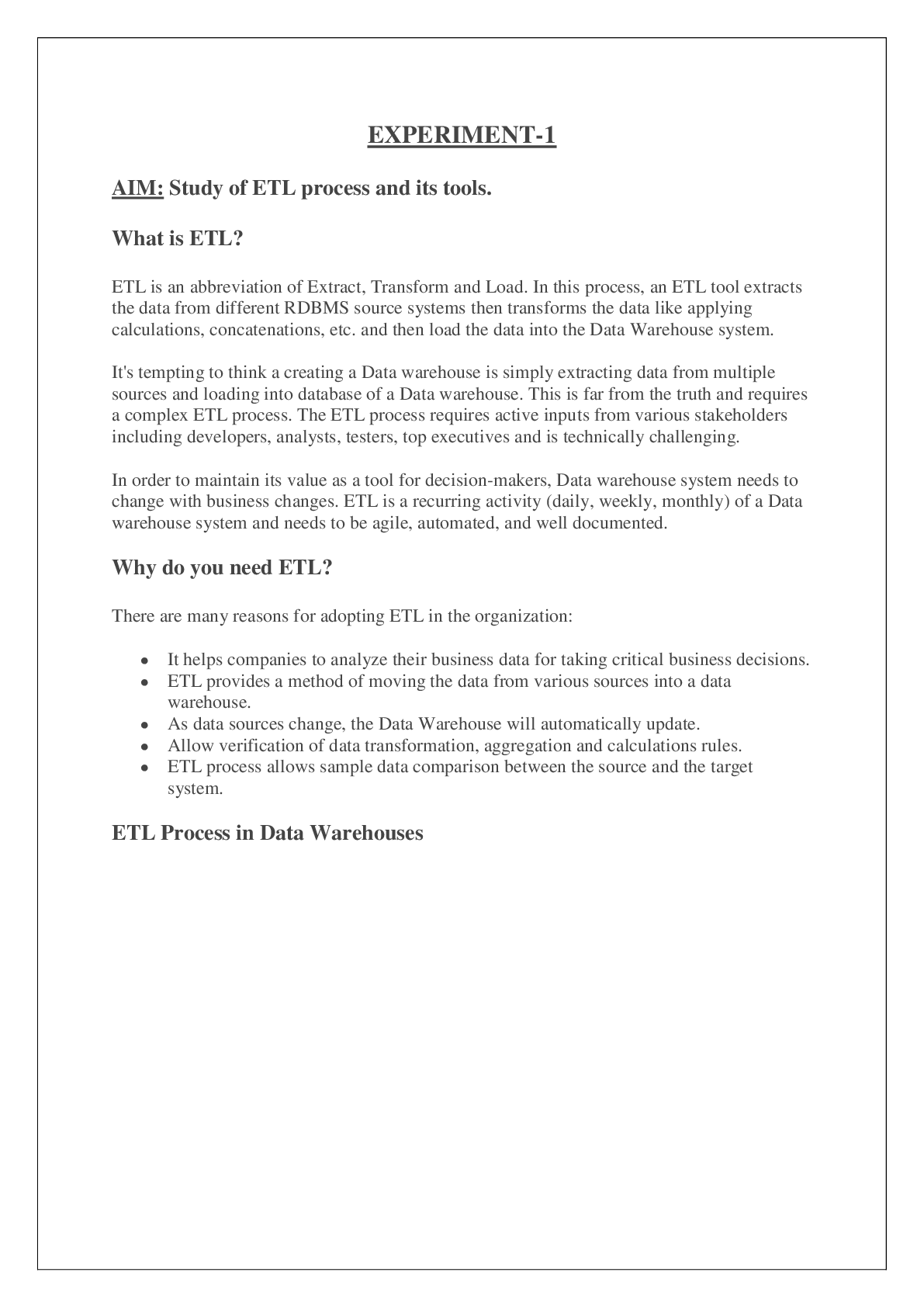

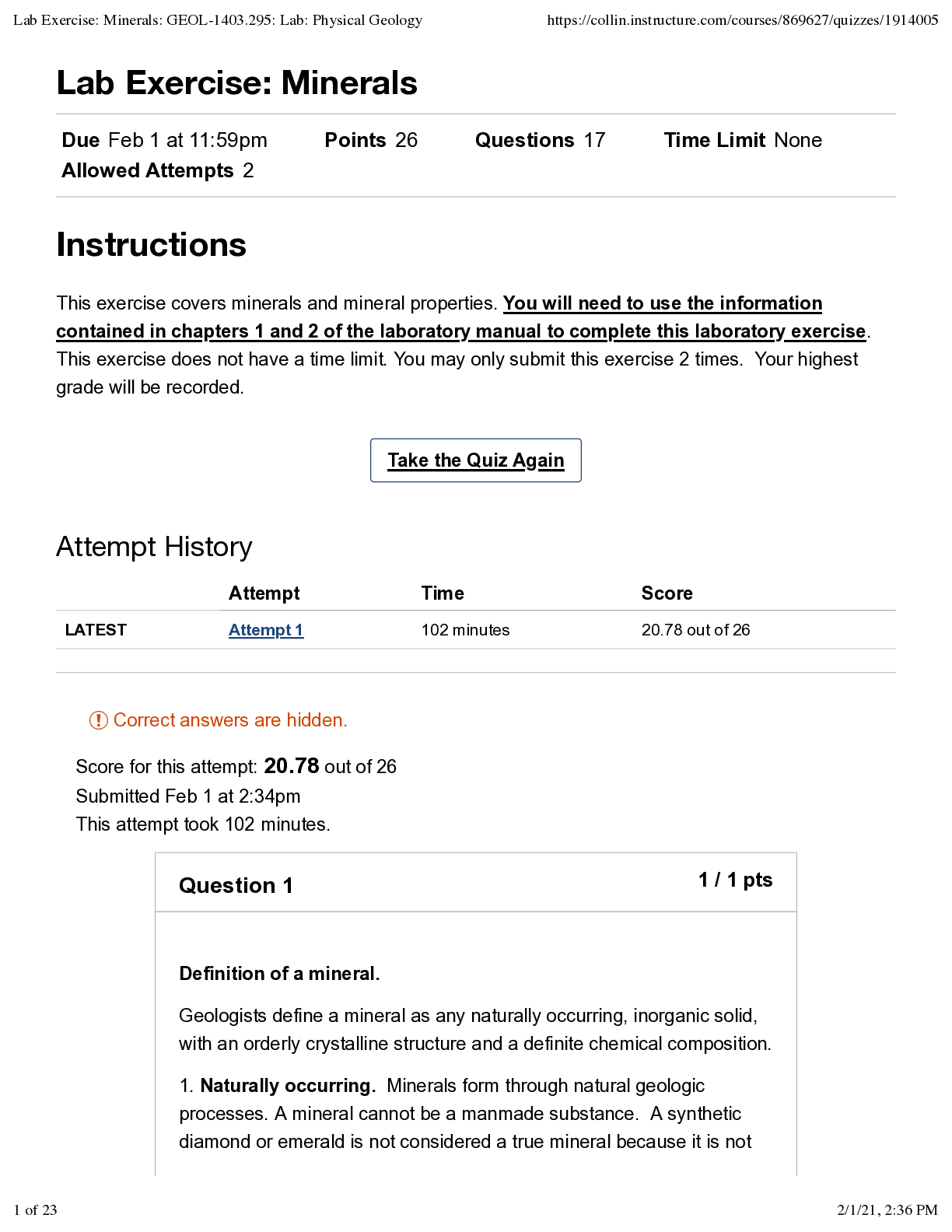


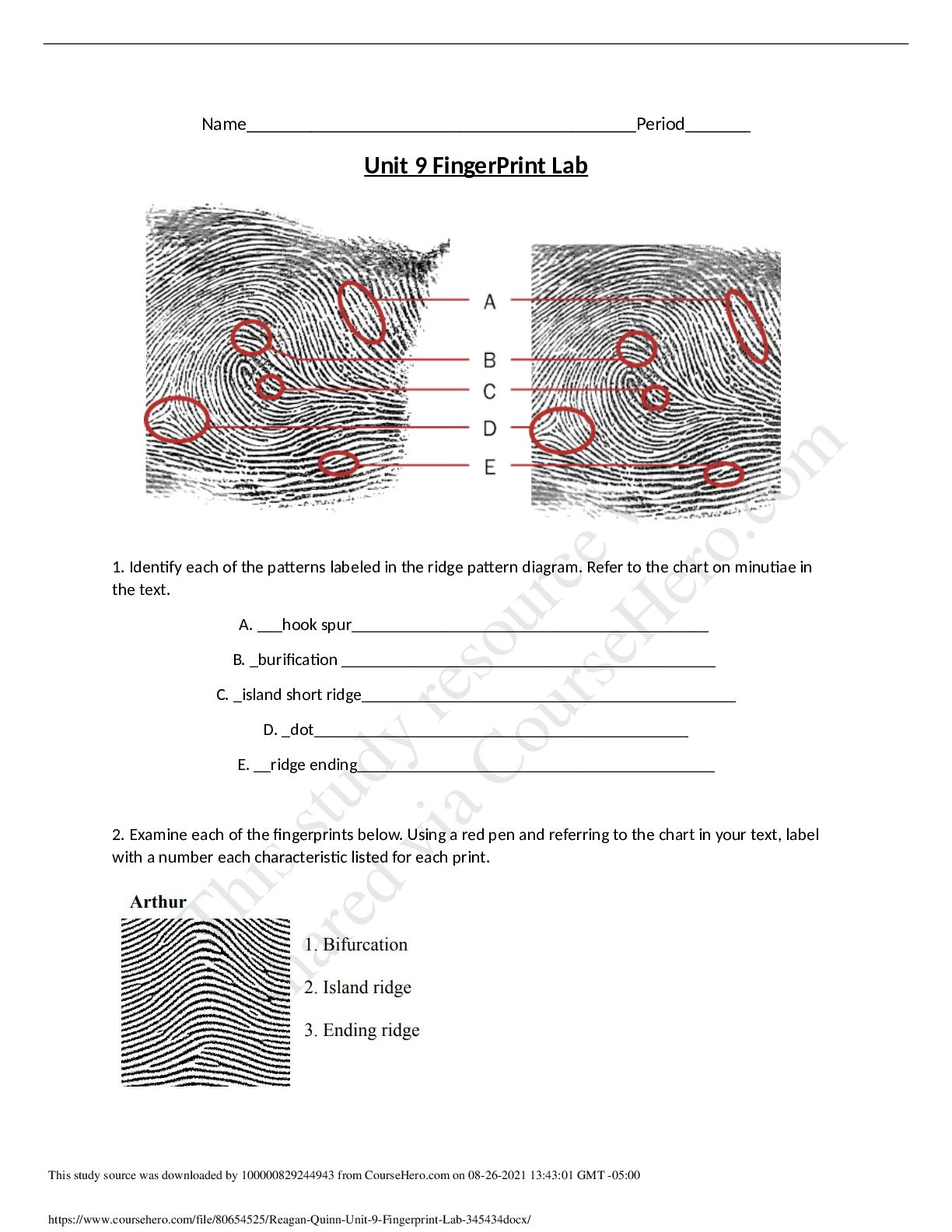





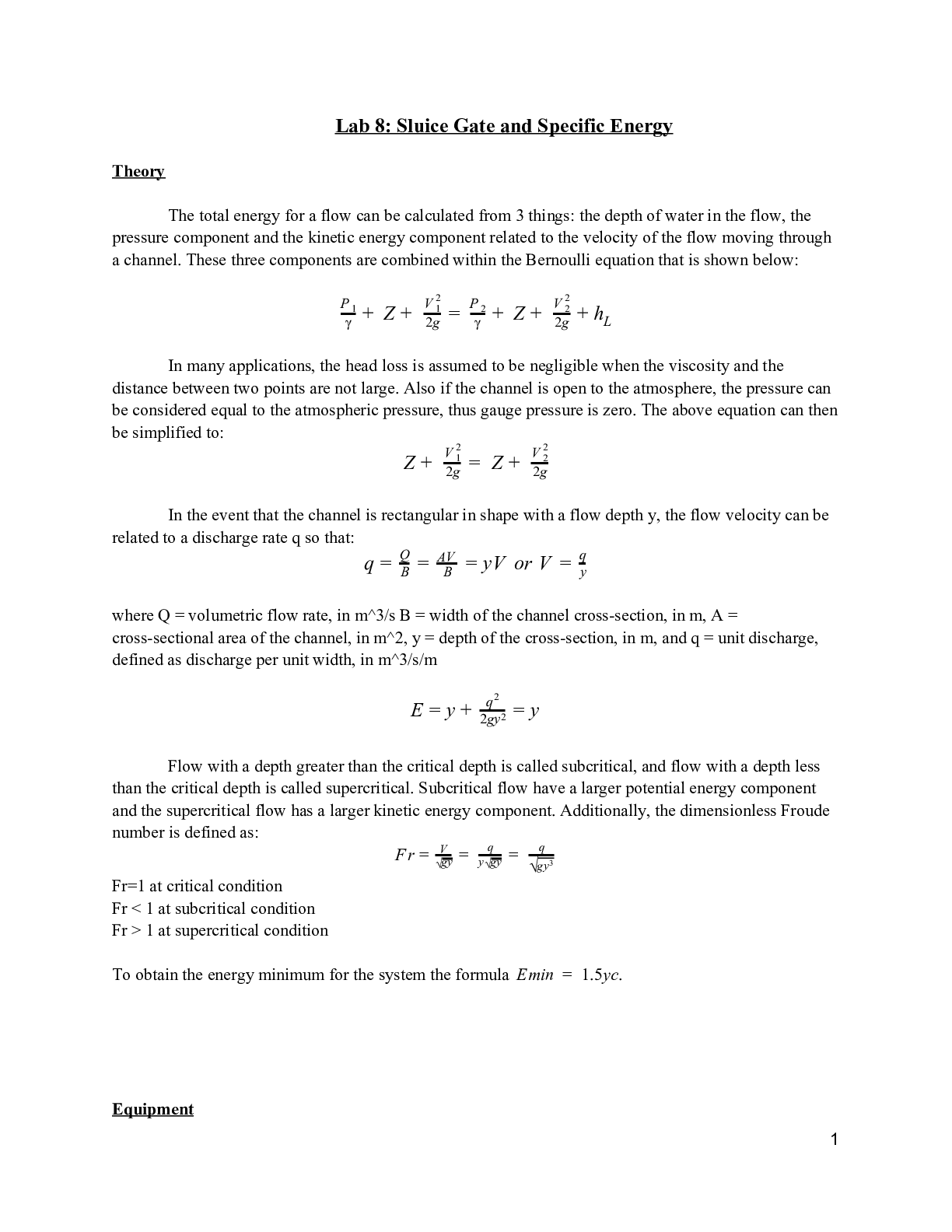
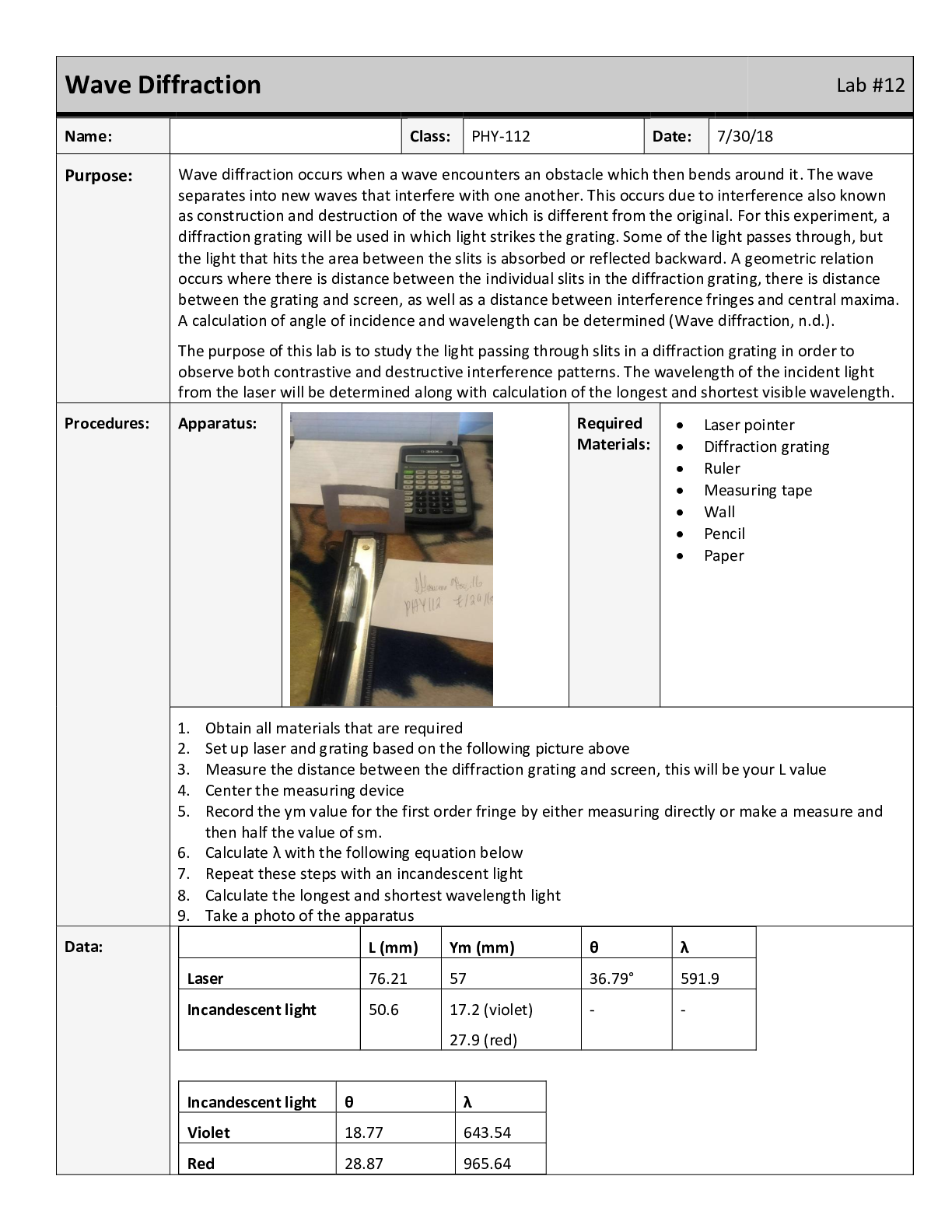

.png)

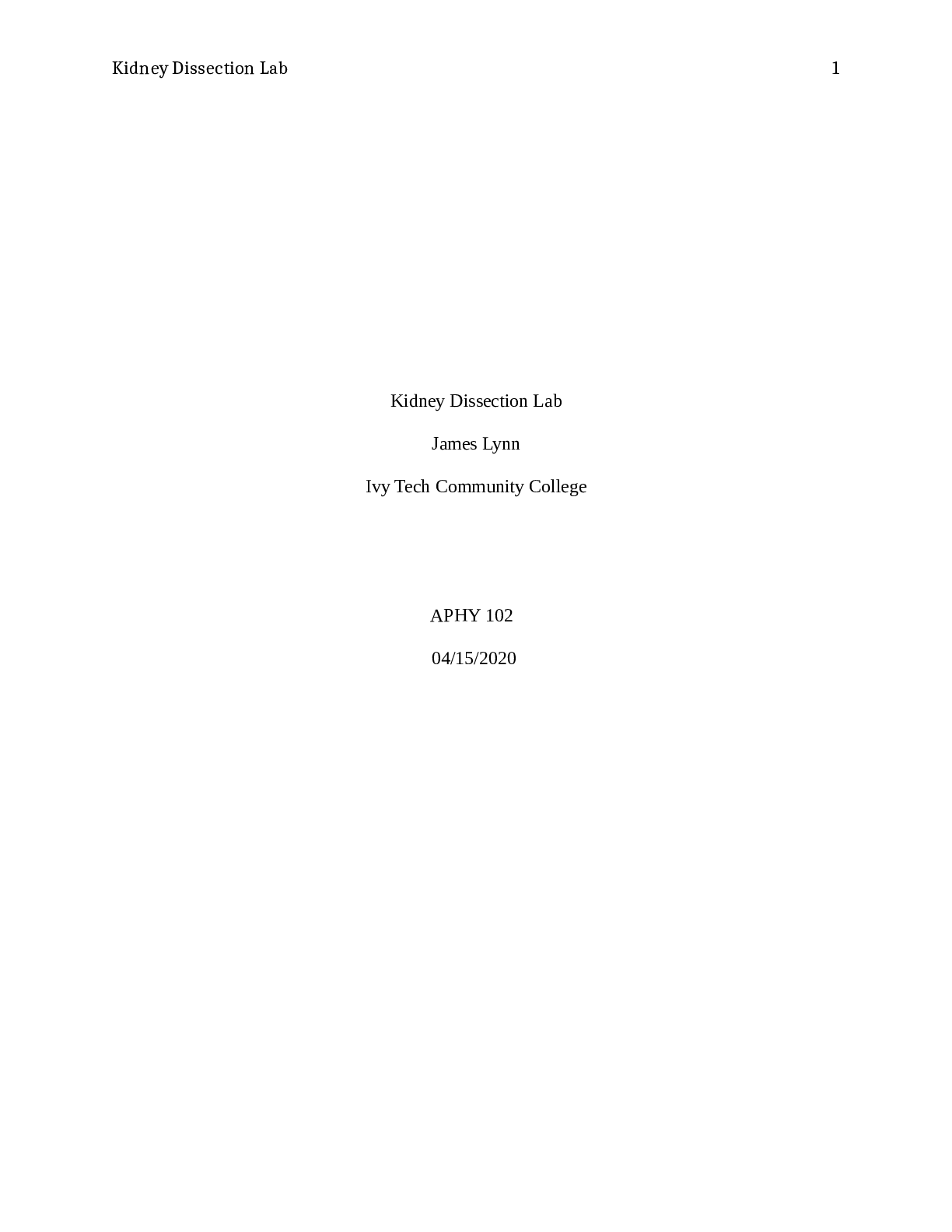



.png)

